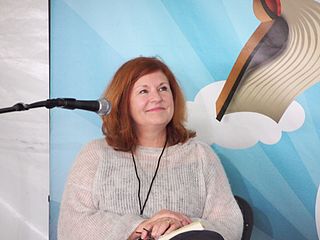A Quote by Lynn Coady
This is not necessarily the answer people want, but ultimately, I think writing is an amoral process. Your ultimate responsibility is to the truth of the story you're trying to tell.
Related Quotes
[Eugene Smith] was always writing these diatribes about truth, and how he wanted to tell the truth, the truth, the truth. It was a real rebel position. It was kind of like a teenager's position: why can't things be like they should be? Why can't I do what I want? I latched on to that philosophy. One day I snapped, hey, you know, I know a story that no one's ever told, never seen, and I've lived it. It's my own story and my friends' story.
Writing something down and processing it, sitting with a text and a story, editing and rewriting new drafts - that entire process helps clarify something for myself. Depending on the person, the act of trying to tell your story helps you understand yourself better, helps you come to terms with something that happened.
I feel some need to represent where I'm from. But ultimately, I think my only real responsibility is to - as much as possible - interrogate my own truths. This is to say not merely writing what I think is true, but using the writing to turn that alleged truth over and over, to stress-test it, in the aim of producing something readable.
It's very difficult to measure the impact on policy of any investigative journalism. You hope it matters to let a little more truth loose in the world, but you can't always be sure it does. You do it because there's a story to be told. I can tell you that the job of trying to tell the truth about people whose job it is to hide the truth is about as complicated and difficult as trying to hide it in the first place.
Everything has changed, but the process of telling a story has not changed. It's like cavemen sitting around the fire; somebody's going to tell the story. Somebody is drawing on the wall. You're communicating. You're trying to learn and teach at the same time. You're your own student and you're your own teacher, but the process is of the communicating.
I think that people have to have a story. When you tell a story, most people are not good storytellers because they think it's about them. You have to make your story, whatever story it is you're telling, their story. So you have to get good at telling a story so they can identify themselves in your story.






































